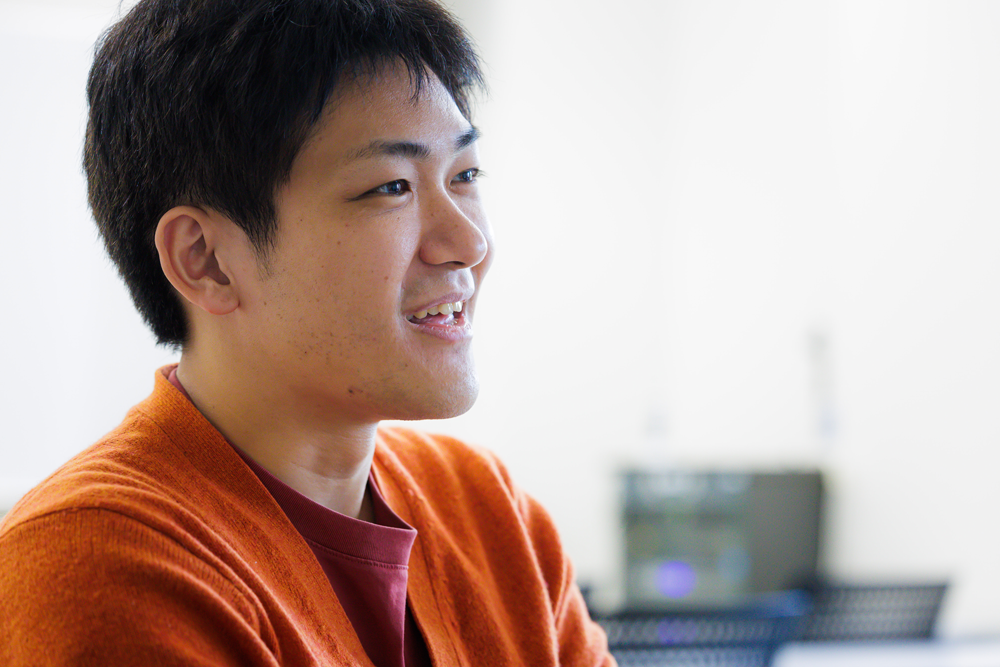
“Flocks” open up a new world of physics

![]() Daiki Nishiguchi
Daiki Nishiguchi
(Assistant Professor, Department of Physics)
B.Sc. in Physics, University of Tokyo, March 2012; Ph.D. in Physics, Graduate School of Science, University of Tokyo, 2017; Research activities as postdoctoral fellow at Institut Pasteur, France, 2017-2019; Assistant Professor, Department of Physics, Graduate School of Science, University of Tokyo, 2019-Present. 2020 The 14th Young Scientist Award of the Physical Society of Japan.
Q. What were you interested in when you were in middle and high school?
A. Physics experiments
I found it appealing that I could logically understand phenomena I saw with my own eyes. In my first year of high school, I started a physics club and did experiments after school. We even did a science demonstration at the school festival. I realized the fun and value of experiments when I witnessed how the experiment would not go as planned if I had ignored some factors, such as friction, in my calculations. I enjoyed modifying the experiments through trial and error to see how we could verify a theory and thinking of theoretical interpretations that would explain the discrepancies between the experiments and theory.
Q. What books or textbooks would you recommend for students?
A. "MiThe Fluid Dynamics of Cell Motility" by Eric Lauga
It is a new textbook published in 2020. It is a technical book but very engaging because it gives detailed and vivid descriptions of how physics can be used to understand the movements and collective behavior of living creatures.
Q. What is your motto?
A. Mure is different.
(I coined this term a year ago.) It plays on the famous phrase “more is different” = “when many atoms and molecules are gathered together, properties that cannot be predicted based on individuals emerge.” The idea is that there are hints hidden in the movements of “mure” (“mure” means flock in Japanese) of living things that could help innovate physics.
Q. What are your hobbies?
A. Playing with my 2-year-old daughter.
It is a lot of fun to look at schools of fish and the movement and surface patterns of animals at aquariums and zoos. Recently, I made a pile of soap bubbles, and it was exciting to see the wind scatter the bubbles from the pile to all over the place.
Q. Do you consider yourself lucky?
A. I think I am very lucky!
When I stayed at a laboratory in the U.S. as a visiting student, the experiment I had originally planned could not be performed due to equipment failure. But the experiment we came up with instead produced fascinating results. There are many other lucky episodes like this, but all of them are thanks to the support of the people around me.
Q. If you could be reincarnated as an animal, what would it be?
A. Bacteria (though not animals)
I often use them in my experiments and want to know how they feel. I want to understand why some experiments work and others do not. I want to understand properly how bacteria experience the world.
Message


